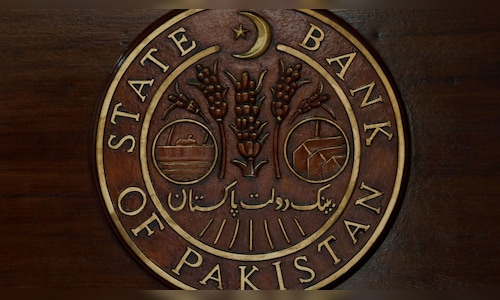When Pakistan was in the thick of a severe foreign exchange crisis in 2022, some of the country’s largest commercial banks allegedly manipulated exchange rates by over-invoicing letters of credit (LCs) used for imports.
On Monday (September 23), Pakistan’s Senate Standing Committee on Economic Affairs launched a scathing attack on the State Bank of Pakistan (SBP) for leniency in penalising commercial banks involved in a PKR (Pakistani rupee)-6,500 (roughly $235-million) ‘heist’ through unauthorised higher charges on opening of LCs during the 2022 forex crisis, according to a report by the Dawn.
Lawmakers expressed outrage at the regulator’s failure to hold banks fully accountable, letting them go with fines totalling PKR 140 crore, a fraction of the staggering PKR 6,500 crore allegedly pocketed by the banks.
The committee demanded a more thorough investigation into the role of Pakistan’s largest banks in exploiting exchange rates for personal gain during one of the country’s worst foreign exchange crises.
What was the forex crisis?
Pakistan’s economy in 2022 was already in turmoil due to a combination of factors including a dwindling foreign exchange reserve, high inflation, and a rapidly depreciating rupee. The foreign exchange reserves fell to critically low levels of under $8 billion — barely enough to cover a few weeks of imports. The government had to rely heavily on financial support from international bodies, particularly the International Monetary Fund (IMF), to avoid an economic meltdown.
In this environment of extreme forex shortages, businesses struggled to secure foreign currency for vital imports. This created an opportunity for banks to manipulate the system by overcharging for LCs, a crucial instrument in international trade that guarantees payment for imports.
How banks allegedly profited from the crisis
Normally, LC fees reflect the risks tied to currency fluctuations, adjusting to protect banks from losses as exchange rates shift. However, with foreign currency reserves severely depleted and the Pakistani rupee sharply depreciating, some banks allegedly saw this as an opportunity to overcharge importers desperate for US dollars.
As businesses scrambled to secure essential imports — ranging from raw materials to food and fuel — the inflated LC charges imposed by the banks became unavoidable. Importers were left with little choice but to pay exorbitant rates, further straining their operations and increasing costs for consumers.
These inflated fees allowed banks to make significant profits, taking advantage of the widening gap between the Pakistani rupee and the US dollar. While businesses and consumers struggled with soaring costs, the banks allegedly reaped billions in unlawful gains.
This manipulation of the LC system, designed to account for risk, went far beyond justified pricing, transforming what should have been a safeguard into a tool for profiteering. By exploiting the volatility of the exchange rate, banks were able to amass huge profits while the country’s economy remained on the brink of collapse.
This alleged over-invoicing not only burdened businesses but also worsened the broader economic crisis, intensifying inflation and placing essential goods further out of reach for ordinary citizens.
SBP’s response under fire
SBP’s lenient approach in penalising commercial banks prompted strong criticism from lawmakers, who argue that the SBP failed to act swiftly and decisively to prevent the exploitation during the forex crisis.
ALSO READ | Pakistan finds oil that may ‘change its destiny’
Additionally, the Senate Committee is calling for a deeper probe into the use of IMF funds and more stringent regulations to prevent such practices in the future. Lawmakers are demanding that the unlawfully earned PKR 6,500 crore be returned to the public treasury and that the SBP adopts stronger oversight mechanisms.
ALSO READ | India serves notice to Pakistan seeking review of Indus Water Treaty

